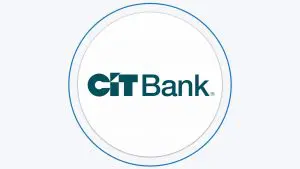Table of Content
Many consumers have noticed that inflation is on the increase. Even if you don’t watch financial news programs, you are likely to have seen the impact of inflation on the cost of your weekly grocery shop or other everyday expenses.
However, you may not be aware of the impact of inflation on your savings and debt. So, here we’ll explore this topic in more detail.
How does Inflation Affect Your Savings?
While initially, you may be impressed that you can earn more on your savings balance, as increasing inflation drives up the base rate, there are other consequences. Inflation impacts the buying power of your money, so it can also have a massive effect on your savings.
For example, if you’re getting a generous 2% on your savings, if the inflation rate has gone up to 7%, you are actually losing value on your funds. In this example, if you had $1,000 in this savings account, you would earn $20 in interest after a year. However, that $1,000 would have a real-world value of $930 after a year of inflation at that level.
So, while on paper, a higher inflation rate is likely to make it look like you’re getting a better deal on your savings, in reality, you are likely to be losing value on your savings. This is particularly visible if you have tied your funds up in a CD or other time-specific investment.
For example, if you put $1,000 in a three-year CD to earn 4% if inflation continues to rise, your money in the CD will continue to lose value every year.
How does Inflation Affect Your Debts?
When inflation is on the increase, many banks become hesitant about lending. They may make their lending criteria more rigid so that even if you have excellent credit, you may struggle to obtain the finance you need.
On the other hand, if you already have a loan or other finance, provided you have a fixed rate, you should not really notice the impact of increasing inflation. However, you should still be aware of how your debts impact your overall financial health.
If your overall buying power has been reduced, you may notice that your everyday costs have increased. You may be paying more for groceries, utilities, gas, and other essential expenses. Therefore, even if your loan repayments are fixed at the same monthly amount, you may find it more of a financial burden.
Unfortunately, this rising inflation may hurt many Americans.
What are the Main Problems With Inflation?
Inflation has several effects on the economy on the whole, but specifically, it can cause some problems that affect the typical consumer.
- Eroded Buying Power: We’ve already touched on this above, but increasing inflation does not simply add cents to your favorite grocery store items. As the power of the dollar is eroded, anything imported into the country costs more.
This means that even if you’re buying produce grown in your local area, the prices can still increase due to the increased cost of fertilizer, seed, and even farm equipment that needs to be brought into the area. This is not to mention that there are everyday products that are not grown domestically.
- Strengthens or Weakens Currency: High inflation is typically associated with a slump in the exchange rate, so a weaker currency generally leads to inflation. When economies import significant goods and services with a weaker currency, they must pay more for imports in local currencies.
For example, when the dollar falls 10% against the Euro, European manufacturers don’t need to raise their prices for goods shipped to America to cost more. Instead, whereas $1 may have been worth €0.85, it may now only be worth €0.80. This means that the goods that cost €10 are now costing $12.50 rather than the previous price of $11.76.
How to Smartly Manage Your Money With Rising Inflation?
Since rising inflation can impact almost every aspect of your everyday life, it is important that you know how to smartly manage your money in these conditions. Fortunately, some inflation-proof investing strategies can help you avoid losing value on your investment fund.
As we discussed above, standard savings accounts and CDs are not likely to be the answer, but some strategies have resilience against rising inflation. Of course, there are no guarantees, but these asset classes are likely to be more appealing in times of uncertain inflation rates.
1. Gold
Gold is widely viewed as a hedge against inflation. In fact, gold is considered to be an alternative currency in countries where native currencies are losing value. Gold is a tangible, physical asset that typically holds its value.
However, gold does not pay yields, and the value does not tend to fluctuate wildly. This means it can be an excellent asset to store your funds, but it will not be a growth asset.
2. Commodities
Commodities are a broad category, including precious metals, oil, electricity, natural gas, grain, beef, and even orange juice. Foreign currencies and other specific financial instruments are also included in this group.
Inflation and commodities have a unique relationship, as commodities can indicate future inflation rates. As the prices of commodities rise, so does the cost of products that require these commodities to be produced.
However, commodities can be highly volatile since they depend on supply and demand factors. So, you need to be cautious about trading in commodities.
3. TIPS
TIPS, or Treasury Inflation-Protected Securities, are a type of U.S Treasury bond. They are indexed to inflation to protect investors from rising inflation levels.
TIPS payout twice yearly at a fixed rate, but the principal value changes based on the current inflation rate. This means that the rate of return includes an adjusted principal. TIPS has three maturities: five, 10, and 30 years.
However, there are a few risks you should be aware of before investing in TIPS. If the Consumer Price Index falls, your principal amount may still drop. Conversely, if there is an increase in the bond's face value, you will need to pay more tax.
TIPS are also sensitive to interest rate changes, which means you could lose money if you sell before the maturity date.
4. Real Estate
Real estate is one of the go-to’s for protecting your investment fund from rising inflation. Property values typically increase as inflation rises. Real estate also has the advantage of providing an income stream.
As inflation increases, the potential rent a landlord can charge will also increase. This means that over time, there is a potential for higher earnings, and your initial capital investment will also increase in value.
You must be prepared to tie your funds up for the medium to long term. Additionally, the transaction costs are far higher than purchasing commodities or stocks. The investment will also be highly illiquid, so you can’t easily and quickly sell to release your capital.
Another potential barrier to investment in real estate is the minimum investment amount. However, this can be negated with REITs. REITs or Real estate investment trusts allow you to buy shares of income-producing real estate properties.
5. Stocks
Finally, stocks can be an investment vehicle to negate increasing inflation rates. Stock investing does take some expertise, and there are several investment strategies. If you don’t invest carefully, there is the potential to lose money.
However, if you have already tried investing in stocks, increasing your investment fund into these assets can help you to manage higher inflation.
Tips for Managing Your Money During High Inflation
While we’ve covered investment vehicles to manage your money to combat rising inflation, there are some further tips to help you.
- Don’t Lock in For Too Long: While getting your money securely stashed away for the long haul is tempting, you should avoid locking into any investment for too long. While there are some excellent vehicles for negating increasing inflation, such as real estate, they are highly illiquid. This means you’ll have a hard time if you need to release some funds in short to medium term.
- Be Flexible: Another way to manage your money effectively during high inflation is to take a flexible approach. You may need to look at shorter-term deals and packages. For example, if rates are climbing, CDs can look less attractive in the future. However, if there is a short-term CD with a solid rate, it may be worth taking on a six-month CD or considering a CD ladder.
So, don’t assume that you must tie up your funds in illiquid investments. Be flexible and look at all the available opportunities to see what suits you at the current moment and in the current conditions.
- Monitor Your Debt: If you’ve got a fixed-rate loan, you are tempted to forget about it and concentrate on other areas of your finances. However, as everyday expenses increase significantly, you may struggle to manage your debt.
This means that you could start to incur costly penalties and late payments. A more strategic move is to cut down your expenses to ensure that you can tighten your financial belt if necessary.
- Adjust Your Budget: While maintaining your savings is essential in any economic condition, you must be realistic. If your household expenses have increased, there is no point in continuing to save the previously set amount if you start to rely on credit cards to make up the shortfall. Credit card debt is particularly problematic in a rising inflation environment, as this floating rate debt will be reflected in increased monthly payments.
So, take another look at your budget and adjust it accordingly. If your everyday expenses have increased, look at ways you can save money, but you may need to face the possibility of saving a little less each month.
- Consider Refinancing Your Mortgage: If your fixed rate deal is about to end, it is a good idea to consider refinancing now before rates increase further. You could lock in a more advantageous rate and continue with a low-interest deal. If inflation has already started to increase the home prices in your area, you will have a lower loan-to-value ratio, which could allow you to access a better deal from potential lenders.
Rapidly rising inflation is daunting, but if you are prepared for it and take the appropriate steps, you can negate the impact somewhat. By protecting your savings and managing your debt, you can ensure that your funds hold their value and concentrate on managing your day-to-day money against rising costs.


















